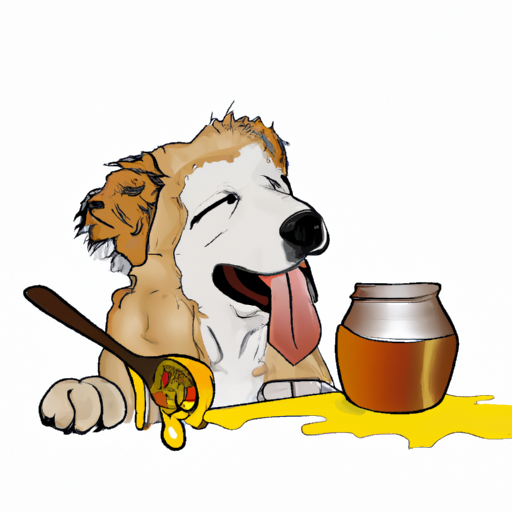Honey, nature’s liquid gold, is loved by many for its sweet taste and health benefits. But have you ever wondered, what does honey do for dogs? The answer might surprise you. Unlike some human foods that can be harmful to our furry friends, honey can actually provide several benefits to dogs when given in moderation.
Table of Contents
- The Health Benefits of Honey for Dogs
- How to Safely Give Honey to Your Dog
- Risks and Precautions
- Honey in Dog Food Products
- Frequently Asked Questions
Key Takeaways
- Honey can boost your dog’s health in several ways.
- It’s important to give honey to your dog in moderation and consult with your vet first.
- Not all honey is created equal – raw, local honey is the best option for your dog.
The Health Benefits of Honey for Dogs
For centuries, honey has been used as a natural remedy for a variety of ailments in humans. And as it turns out, dogs can also benefit from this potent superfood. Here’s why:
1. Allergy Relief
Just like humans, dogs can suffer from seasonal allergies. Giving your dog local honey can potentially help alleviate these symptoms. The theory is that local honey contains small amounts of local pollen, which can help your dog build up a tolerance to it over time. This is similar to how allergy shots work in humans. For more insights on dealing with dog allergies, check out this useful article.
2. Natural Energy Booster
Honey is rich in natural sugars. These sugars provide a quick source of energy, which can be particularly beneficial for active dogs.
3. Digestive Aid
Honey has natural prebiotics which can help improve your dog’s digestive health. Prebiotics feed the good bacteria in the gut, promoting a healthy digestive system.
4. Wound Healing
External application of honey has been found to aid wound healing thanks to its natural antimicrobial properties.
How to Safely Give Honey to Your Dog
While honey can be beneficial, it’s essential to give it to your dog safely and in moderation. Here are some tips:
-
Start Small: Too much honey can cause upset stomach. Start with a small amount and monitor your dog’s reaction.
-
Choose Raw, Local Honey: Raw honey retains more of its natural properties than processed honey. Local honey can also provide allergy relief.
-
Consult With Your Vet: Always consult with your vet before introducing new foods into your dog’s diet.
-
Use as a Treat, Not a Meal Replacement: Honey should complement your dog’s diet, not replace their regular meals.
This article from One Top Dog provides more information on healthy treats for your dog.
Risks and Precautions
Despite its benefits, honey is not suitable for all dogs. Puppies and dogs with compromised immune systems should not be given honey, as it can contain botulism spores. Dogs with diabetes or obesity should also avoid honey due to its high sugar content.
Honey in Dog Food Products
You may have noticed that some dog food products contain honey. While this can be a good way to incorporate honey into your dog’s diet, it’s important to ensure that the rest of the ingredients are healthy and balanced. This guide from One Top Dog can help you choose the best food for your dog.
Frequently Asked Questions
1. How much honey can I give my dog?
This depends on your dog’s size. As a general rule, small dogs can have a teaspoon of honey a day, while larger dogs can have up to a tablespoon. Always check with your vet first.
2. Can puppies have honey?
No, puppies should not be given honey as their immune systems are not mature enough to fight off potential botulism spores.
3. Can honey help with my dog’s cough?
Yes, honey can help soothe a dog’s cough. However, it’s important to consult with your vet first, as a cough can be a sign of more serious conditions.
In conclusion, honey can offer numerous health benefits for your dog, from allergy relief to wound healing. However, it’s important to remember that honey should be given in moderation and is not a substitute for a balanced diet and regular vet check-ups. This article offers more tips for keeping your dog happy and healthy.



